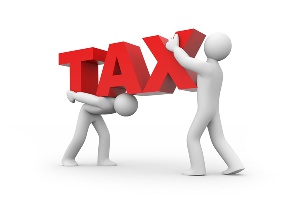Although the state has not devised an effective means to tax their incomes, over 80% of people in the country’s largely informal economy agree they must pay taxes once they earn an income, a survey commissioned by the Friedrich Ebert Stiftung has shown.
“The high level of knowledge about the need to pay taxes is born out of their own inherent ethical and civic consciousness,” the survey report titled ‘Understanding the Urban Informal Economy in Ghana’ indicates.
While about 35% of employers in the sector pay value-added tax through purchases they make from formal enterprises, less than a quarter (23.6%) pay personal income tax, which is a must for formal sector workers the study conducted by Eben Tawiah Anuwa-Amarh, a Commissioner at the National Development Planning Commission, shows.
Although self-employed persons are required to pay income tax at graduated rates in four equal installments, it is mainly people who have formalised their businesses or are in formal employment that pay -- letting over 80% of the workforce off the hook.
The Ghana Statistical Service’s Ghana Living Standards Survey (6) estimates that 88% of all employment is to be found in the informal economy -- which the Friedrich Ebert Stiftung defines as the part of an economy that is not taxed, monitored by any form of government, or included in any gross national product (GNP).
According to Eben Tawiah the informal economy “cannot and should no longer be considered as a temporary and a fleeting phenomenon”, and that “it is here to stay”.
A number of reasons, he says, account for why attention needs be paid to the urban informal economy -- including the fact that the sheer number of jobs in the sector are key to “transformational growth and poverty reduction, and the consequent improvements in standards of living”.
Aside from taxation, the report focuses on other thematic areas like employment and social protection, demographics, capital formation and business formation, and practices in the informal sector among others.
The Ghana Living Standards Survey (6) indicates that the sector is predominantly made up of small to medium-scale businesses, consisting of producers, wholesale and retail traders, and service providers comprising contributing family workers, casual wage workers, home-based workers and street vendors, among others.
Most of them, it says, are largely self-employed persons (farmers, artisans and craft-workers, traders, food processors etc.).
Ghanaian societies, Eben Tawiah observes, are inherently informal and this trait is pervasive in all aspects of national life including work in the economy.
The state, he suggests, should develop policies that support the ‘Decent Work Agenda’, which addresses rights at work, social protection and social dialogue.
“The state must work together with partners/stakeholders to remove barriers to enterprise growth and propose formalisation of a roadmap/action-plan for informal economy enterprises.”
Business News of Monday, 1 February 2016
Source: B&FT

















